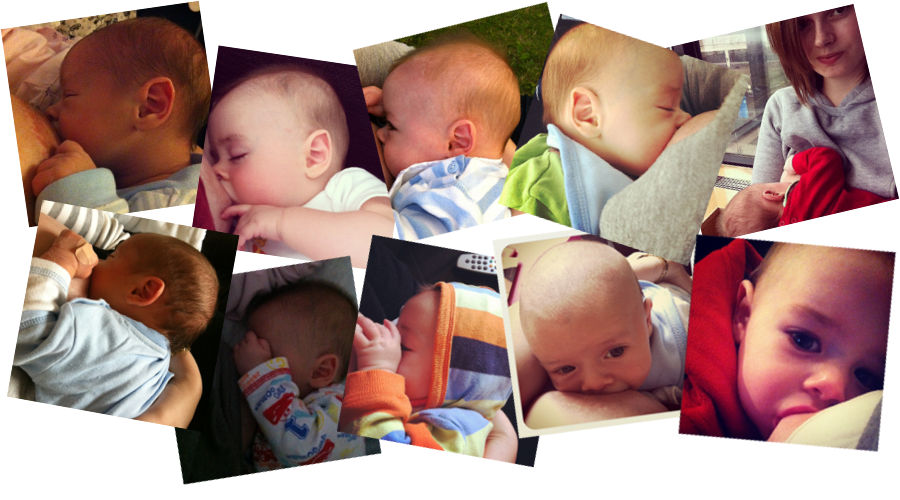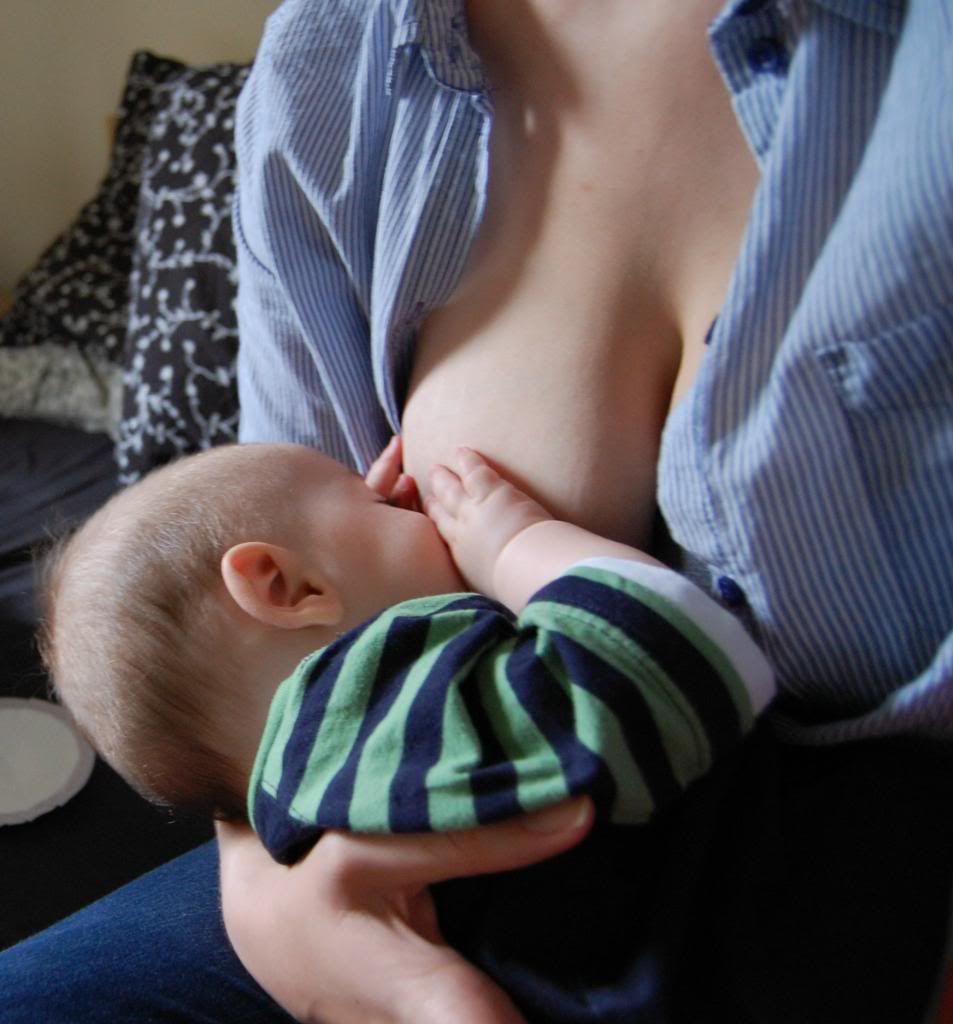
Breastfeeding. The socially touchy subject. Thankfully, attitudes seem to be changing. No longer is it scandalous for a mother to feed her newborn baby but what about when that baby is 6 months old? Or older, say 1 year old? Even 2 years old? What's the opinion then?
For John and I, breastfeeding wasn't "the most natural thing in the world" that it's often hailed to be. In fact for the first 8 weeks I hated breastfeeding. Cracked bleeding nipples that became infected, engorgement mixed with oversupply, expressing nearly every feed which also meant expressing in the wee hours of the morning, suspected thrush... The only problem I seemed to escape was a bout of the dreaded mastitis.
So when the majority of Mum's I knew with little ones John age stopped breastfeeding at 6 months, I was surprised. We only seemed to be finding our feet and getting the hang of breastfeeding -- I was in no way ready to pack it in already. Our Midwives & Health Visitors had always told us to take it one feed at a time so I vowed to carry on this way.
Fast forward to 1 year and we're still taking it one feed at a time. I've yet to put a time frame on our breastfeeding journey and, dare I say it, I'd love to do at least the two years as recommended by WHO (The World Health Organisation). And who knows, maybe we'd even go down the route of letting John self-wean.
I'm extremely lucky to have the support of Iain on the subject of breastfeeding but of course people always question different factors of our choice to do extended breastfeeding.

Isn't extended breastfeeding more about the mother than it is the baby?
Breastfeeding is undoubtedly the best way to feed infants. Just because a baby gets older, it doesn't mean that breast-milk loses any of its positive qualities. Of course as infants grow they start to obtain nutrition from other food sources but the benefits of breast-milk don't just fade away as a result - they'll always be there offering the same protection & goodness.
However there is truth in the fact that breastfeeding is also beneficial for the mother beyond the 1st year -- as with the benefits of breast-milk for an infant, the benefits of breastfeeding, such as protection from cancers & osteoporosis, continues for the mother throughout the entire breastfeeding journey.
Won't it make for an extremely clingy baby who's always reliant on their mother?
There's a common misconception that weaning an infant will make them more independent, where in fact all you're doing is giving yourself more work. If you wean a child from the breast that still requires milk, it'll still need to be given from another source, which they'll still be reliant on their parents to provide.
And in regards to being less clingy and teaching self-settling, I'd rather keep my last-failproof-resort of breastfeeding when we're in need of a calm-down solution.
Not to mention the fact that I'm a mother and my son will always be reliant on me for something, breastfeeding or otherwise.
The longer you breastfeed, won't it be harder to stop?
I can see the logic in this; a screaming 2 year old, vocalising their protest of having something taken away from them -- of course that'd be difficult to deal with!
However, in regards to stopping, I'd like to think we could consider the route of self-weaning which requires no effort at all; the child takes the decision to stop breastfeeding, and that's that.
There's also consideration for the fact that the worldwide average age for self-weaning from breastfeeding is 4 years old. The need to wean babies is that of modern Western views, one which would shock and surprise those in other culrtures. As a mother you go through the motions for questioning every decision you make and the age to stop breastfeeding is no different. However, given that the first thing the majority of babies will do when they're born is root for the breast, it's worth considering they'll know when they no longer need it too -- and I bet given the choice, they'd choose to breastfeed past 6 months, 1 year and maybe even 2 years.
Extra for the Experts.
KellyMom Extended Breastfeeding Factsheet.
Breastfeeding Benefits: How They Add Up.

No comments:
Post a Comment
I love reading & replying to all your comments. Be sure to drop me a comment if you're new here too! If I'm a little slow in replying then feel free to give me a nudge on Twitter (@amylorimer) or send me an email.